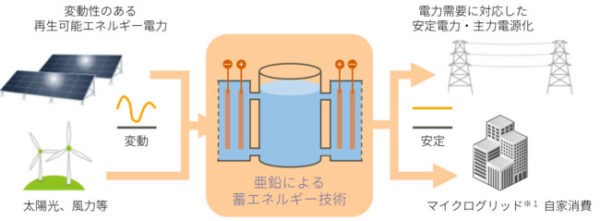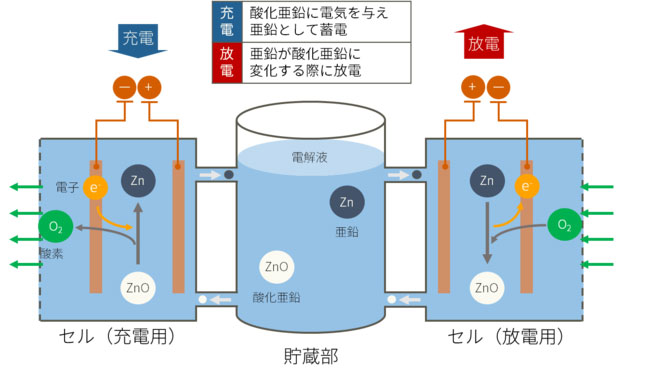From pv magazine Global
Japanese electronics manufacturer Sharp said this week it has started developing zinc-air flow battery (ZAFB) for the storage of large-scale renewable energy projects.
“Based on the zinc-air secondary battery technology that we have developed over many years, we aim to establish a low-cost, high-capacity energy storage technology with a new ‘flow’ design,” the company said in a statement.
Sharp said the new devices will be safer than lithium-ion batteries, as the electrolyte in which the zinc is soaked is a water-based liquid, and the possibility of ignition is extremely low.
A ZAFB consists of two electrodes – a Zn anode and an air cathode. The anode and cathode are separated by a separator allowing ions to transfer across the cell. Potassium hydroxide (KOH) aqueous solution is commonly used as an electrolyte.

“In batteries with a ‘flow’ design, the cell and the tank are independent of each other, so it is possible to easily increase the capacity by increasing the size of the tank,” Sharp said. “During charging, zinc oxide (ZnO) chemically changes to zinc to store electricity and, in the discharging phase, when zinc returns to zinc oxide by the action of oxygen contained in the air, the stored electrons are released, so electricity can be extracted.”
The company said the research project has the support of Japan’s Ministry of Environment. It did not provide any additional technical details.
This content is protected by copyright and may not be reused. If you want to cooperate with us and would like to reuse some of our content, please contact: editors@pv-magazine.com.









By submitting this form you agree to pv magazine using your data for the purposes of publishing your comment.
Your personal data will only be disclosed or otherwise transmitted to third parties for the purposes of spam filtering or if this is necessary for technical maintenance of the website. Any other transfer to third parties will not take place unless this is justified on the basis of applicable data protection regulations or if pv magazine is legally obliged to do so.
You may revoke this consent at any time with effect for the future, in which case your personal data will be deleted immediately. Otherwise, your data will be deleted if pv magazine has processed your request or the purpose of data storage is fulfilled.
Further information on data privacy can be found in our Data Protection Policy.